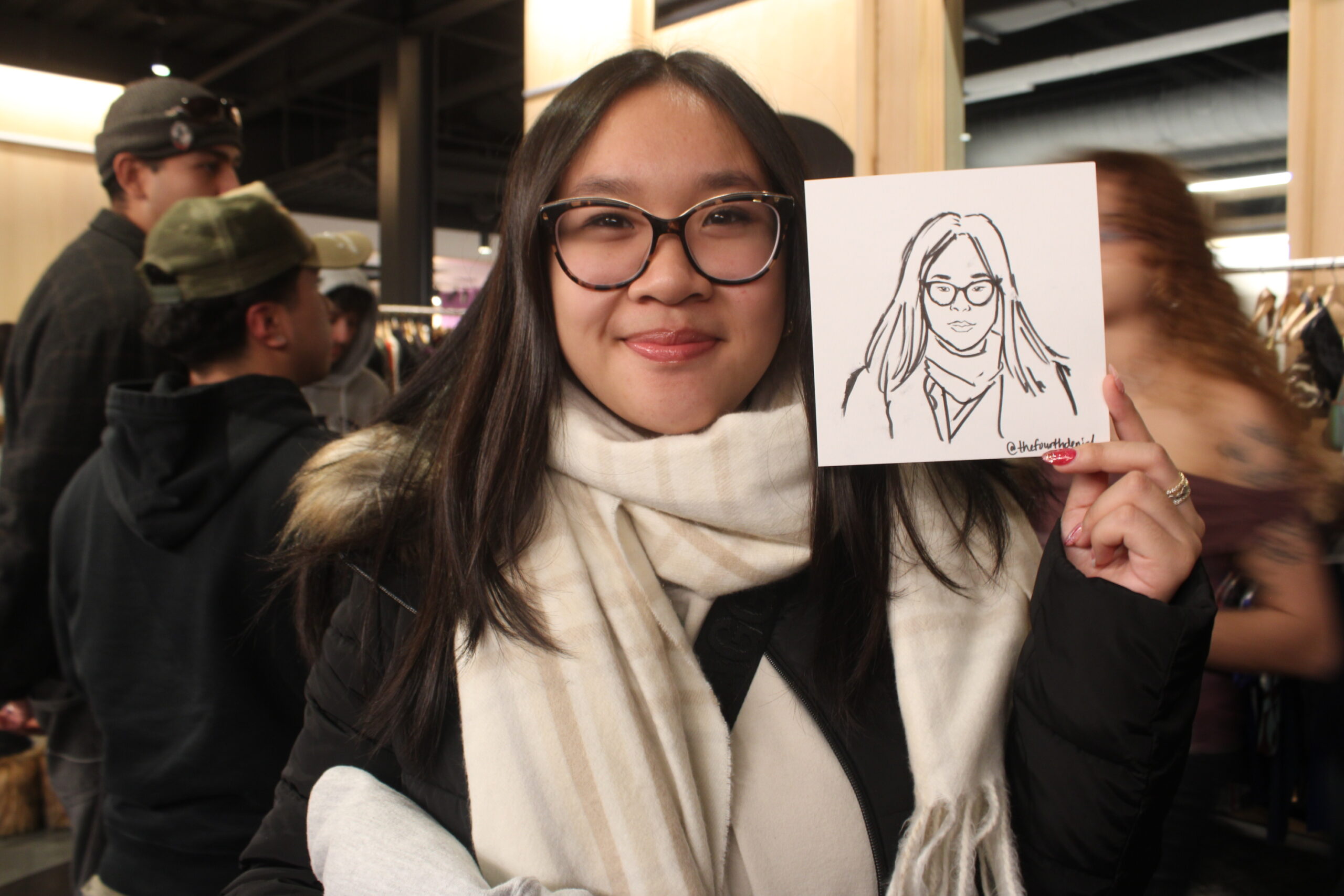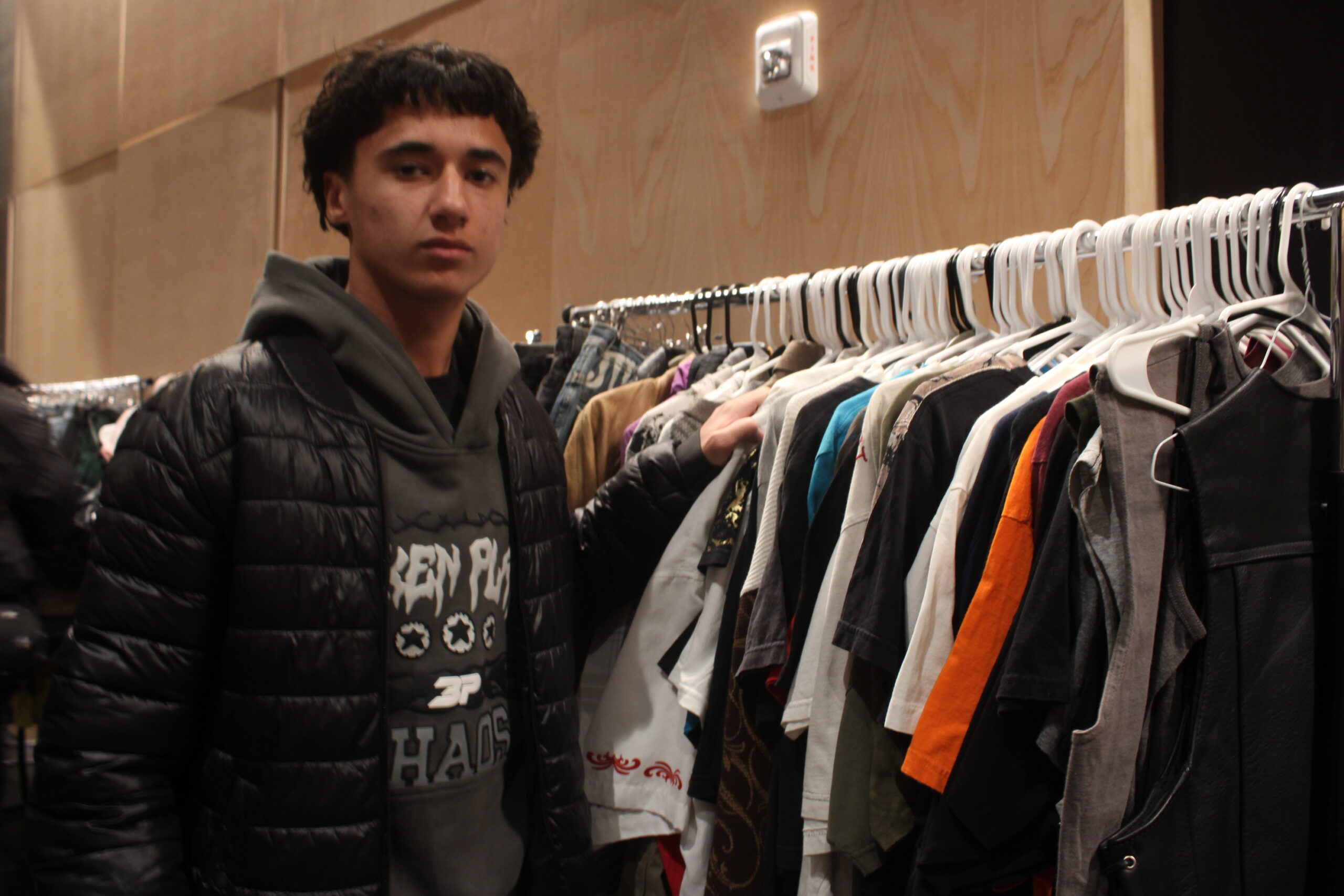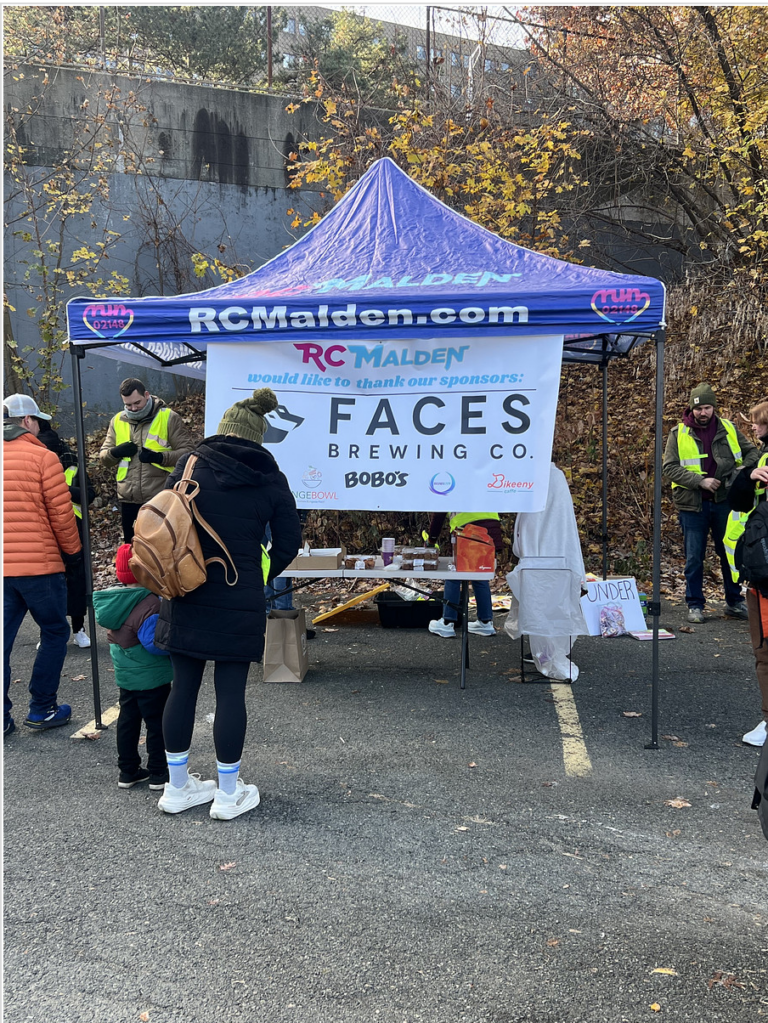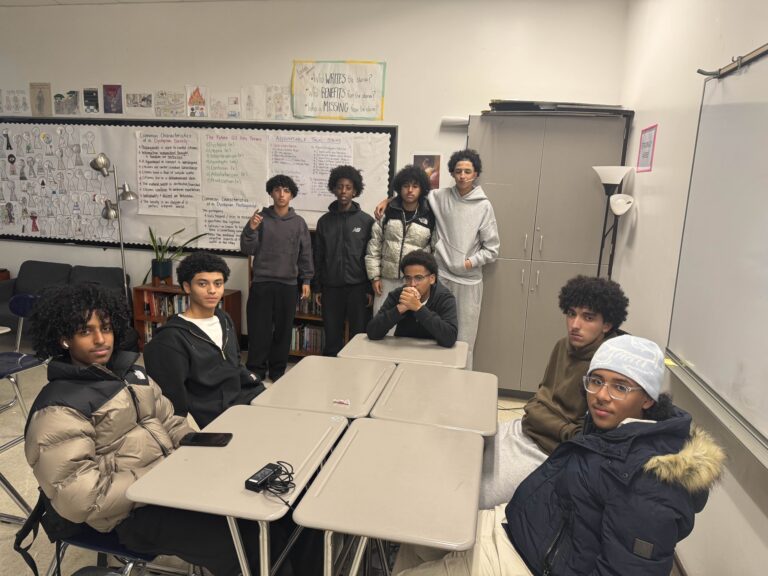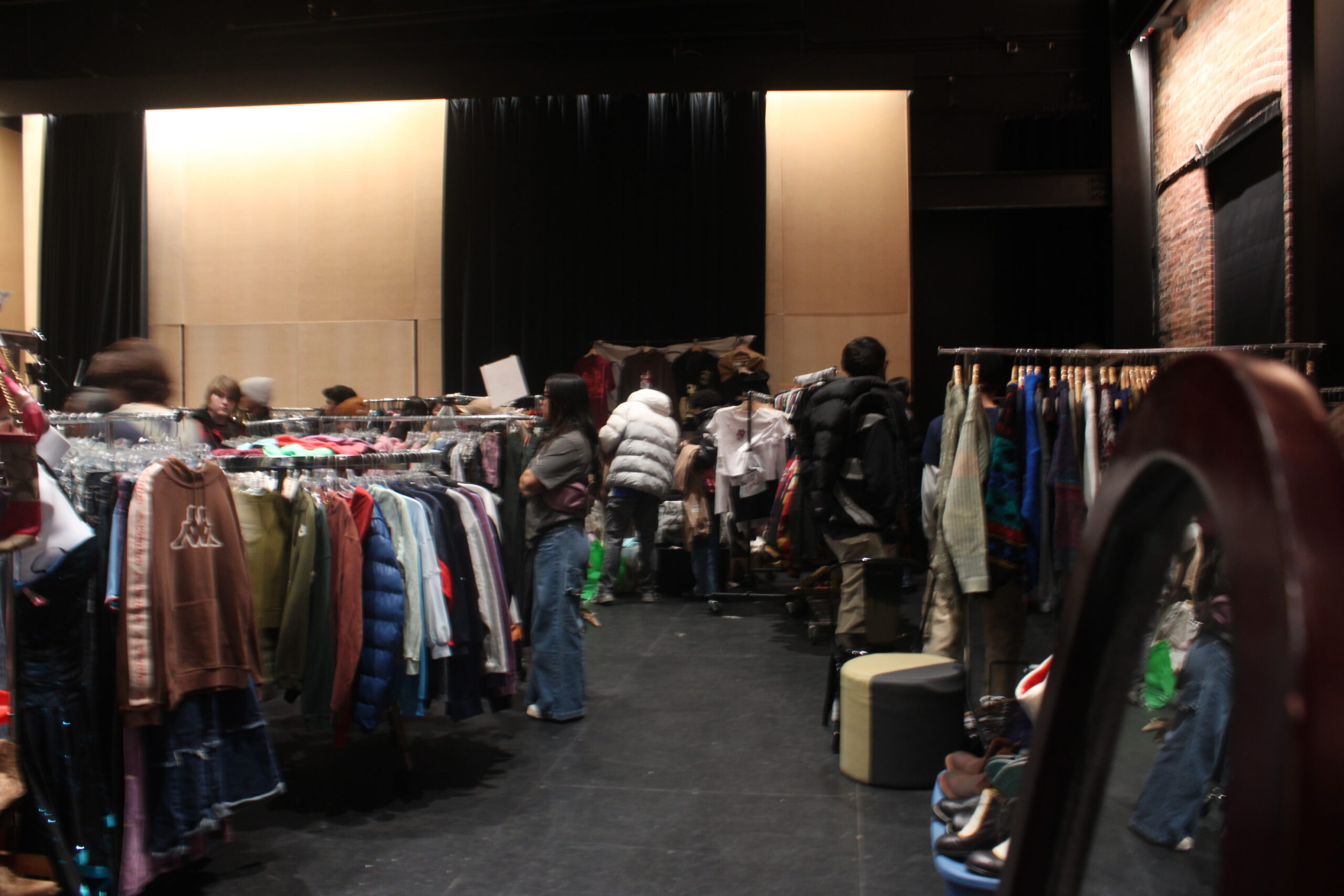
Gabriela Parini Cordova also contributed to this article.
What began as a means of living for marginalized communities in the United States has transformed into something much more significant. Thrifting’s history can be traced to the early 1900s when immigrant populations and low-income families turned to secondhand markets for affordable clothing and household items. Over time, however, thrifting began to represent much more: individuality, creativity, and resourcefulness—rebelling against the homogeneity of mass-produced goods.
Sustainability activism has elevated thrifting from a personal choice to a social movement. As fast fashion exploded in the 1900s and early 2000s, environmental advocates exposed its devastating impact on natural resources, harsh labor conditions, and poor waste management. Thrift stores and secondhand shopping were reframed as acts of resistance, encouraging the reuse of goods to reduce overconsumption. Today, thrifting plays a vital role in both environmental and social justice movements—a role that Select Markets is part of.
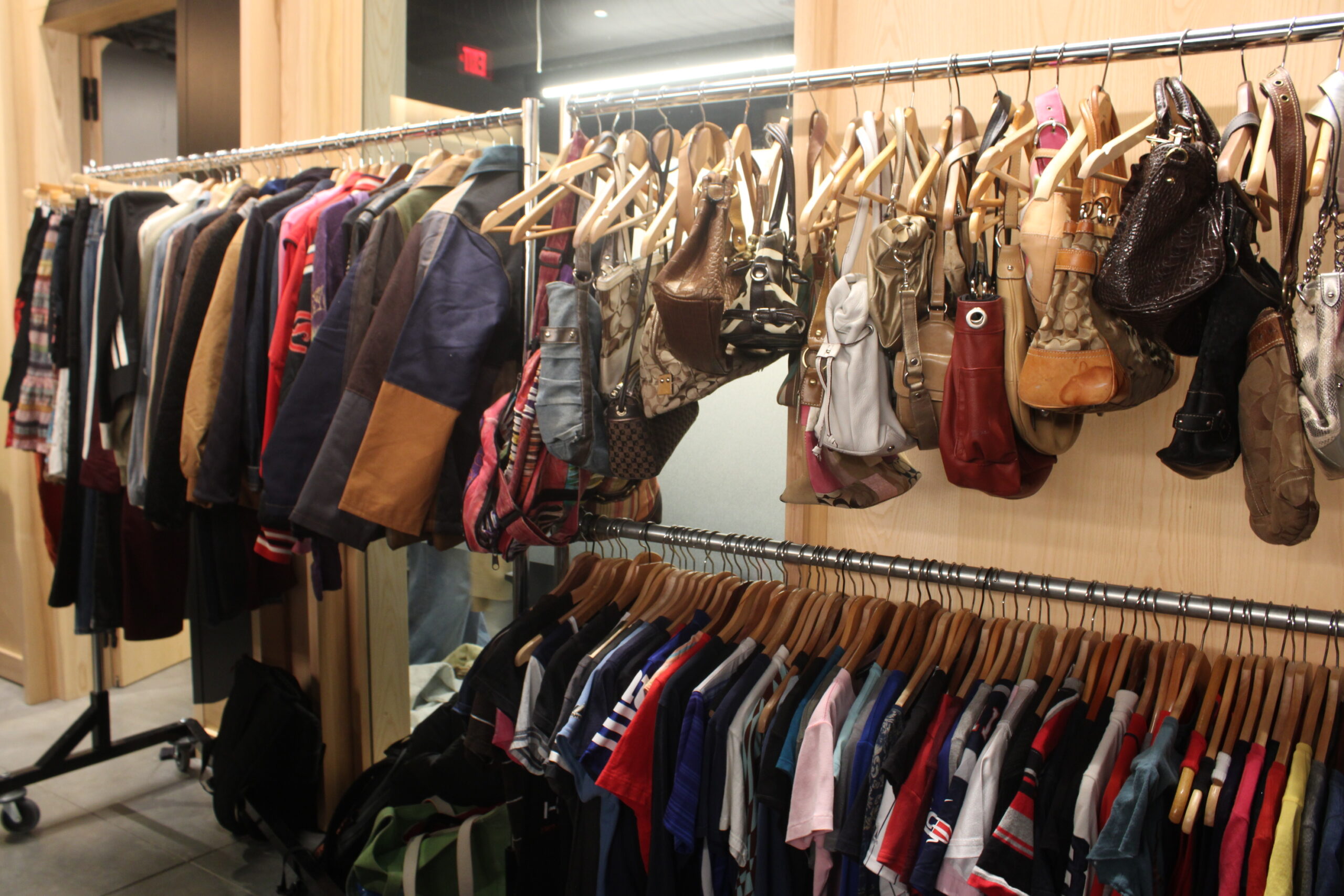
Select Markets, a Boston-based brand founded by Northeastern University students specializes in hosting vintage clothing pop-up events and proudly promotes its motto, “Vintage Finds for Modern Minds.” With a significant social media presence, particularly on Instagram (@select.markets), the brand effectively captures the attention of younger audiences, specifically college and high school students.
In mid-December, Select Markets held its final event of the year at The Foundry in Cambridge, a venue described as “a self-sustaining center of creativity and collaboration in the Kendall Square neighborhood, offering the Cambridge community opportunities in science, technology, engineering, arts, and math.”
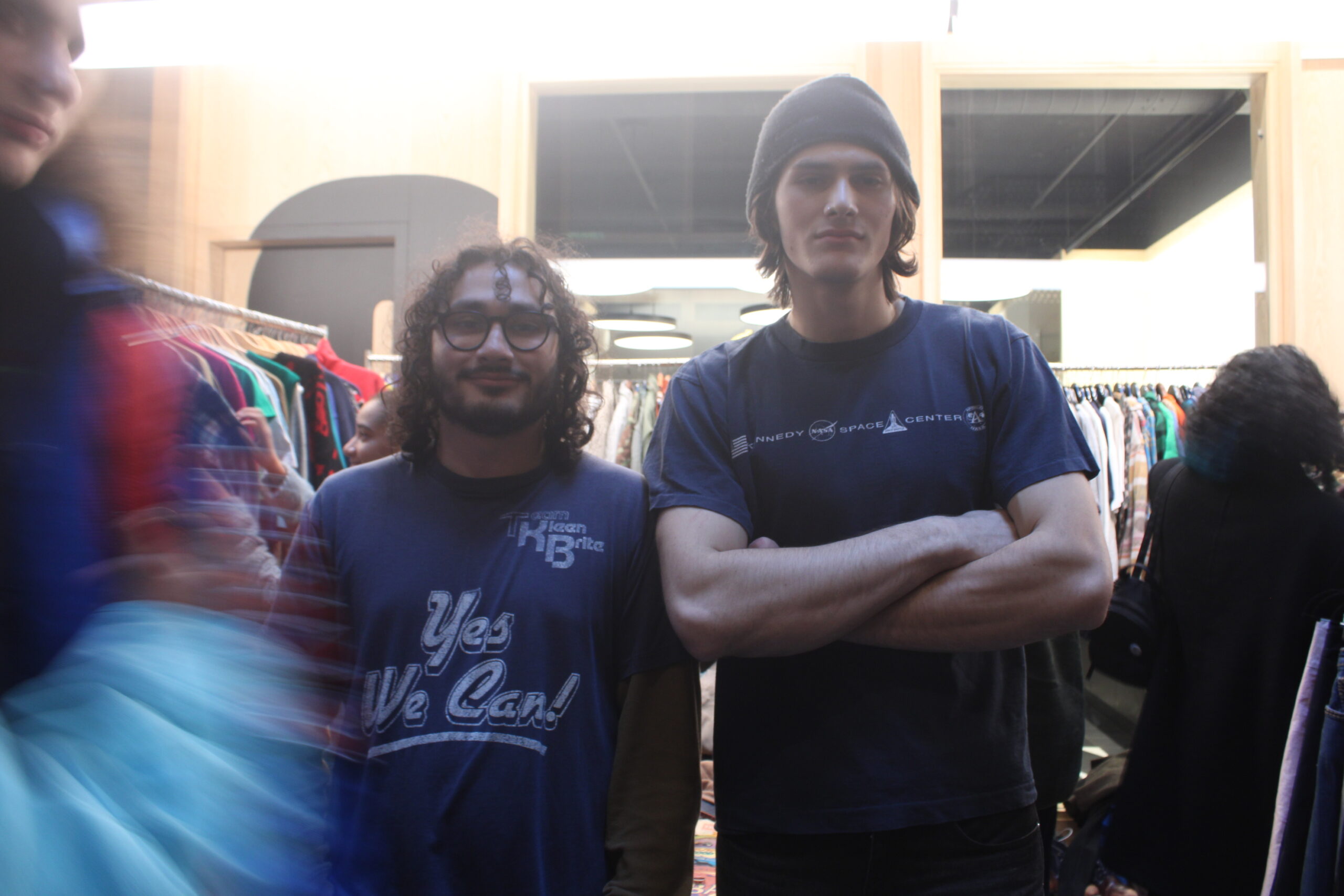
At the Select Markets event in Cambridge, vendors like Agaz Baig (@gazillioneargarments) and Jack Kaplan brought a mix of passion for sustainability and vintage fashion to the forefront. As long-time participants in Select Markets, Baig and Kaplan emphasized the importance of events like these for promoting sustainable fashion and fostering community. “What we’re doing is keeping clothes alive and keeping them from rotting in landfills,” Baig explained, highlighting the environmental benefits of secondhand clothes over fast fashion.
Beyond sustainability, the event stood out for its lively and inclusive atmosphere. Featuring DJs, temporary tattoos, and tooth gem stations, the market offered more than just shopping—it was an immersive experience. “You don’t need money to come to these events,” Kaplan added, noting how the market is just as much about community and fun as it is about purchasing fashion.
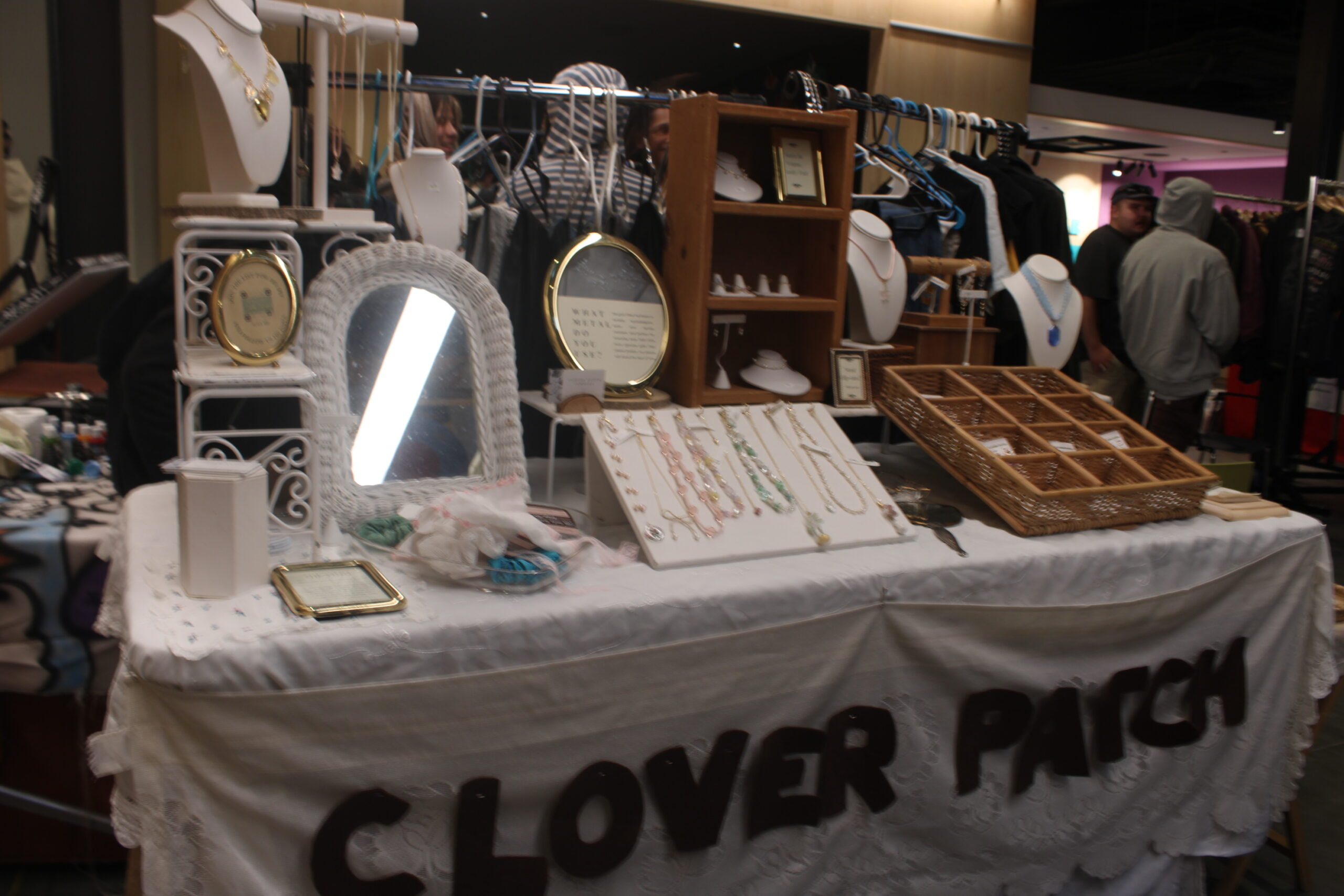
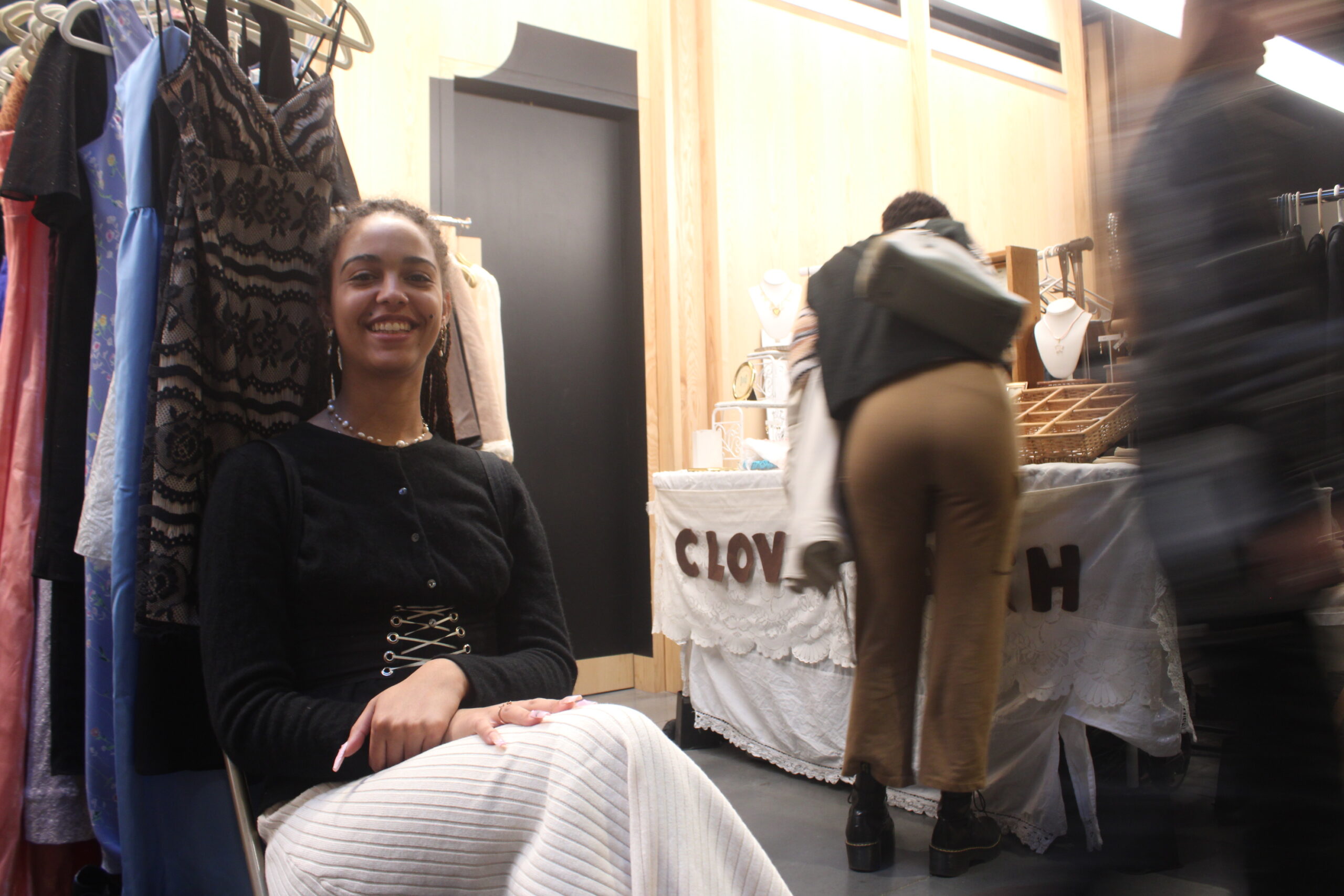
Building on the sense of community previously highlighted, Rachel Eaglin, a Malden High School Class of 2018 alumna, brings a unique perspective to Select Markets. As a jewelry maker and vintage enthusiast, Eaglin sells her handmade fine jewelry and curated secondhand pieces at the market, where she has built lasting relationships with customers and fellow vendors. Having been involved with Select Markets from the beginning, Eaglin sees these events as a space for more than just commerce—they ae a chance to mingle, share, and express personal style in an atmosphere that feels more like a social gathering than a typical shopping experience.
“It’s a lot of community versus just shopping at a mall,” Eaglin explained. With her brand, Clover Patch Jewelry, Eaglin invites people not just to buy but to engage with the unique stories and connections these markets bring.
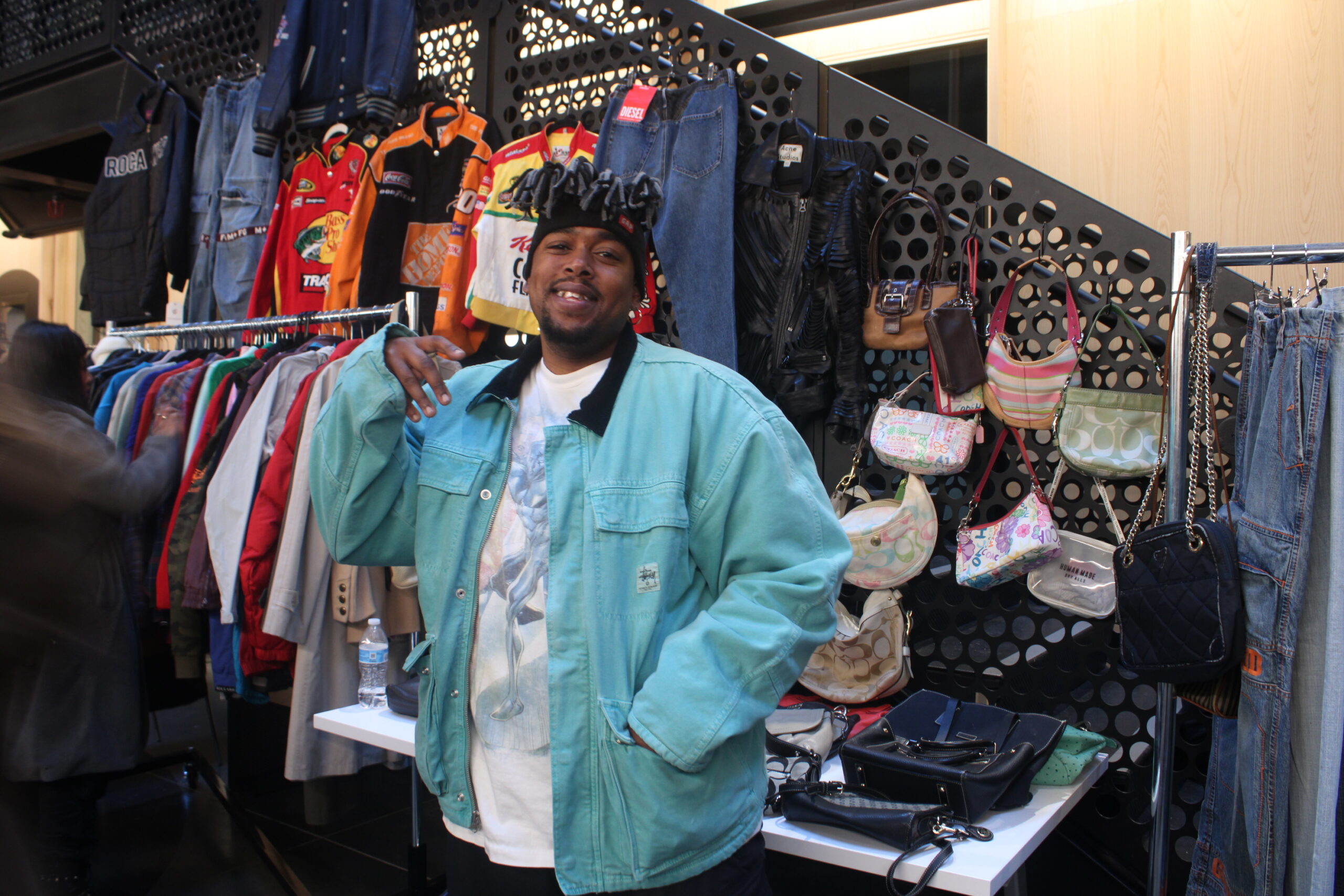
MARQUISE! added to Eaglin’s sentiment, stating, “It’s a good social event, free for all ages, and a great way to sustain the planet.” For MARQUISE!, his love for collecting clothes naturally turned into a thriving business; he now encourages others to explore thrifting, whether shopping or selling, as a fun and impactful way to support sustainability.
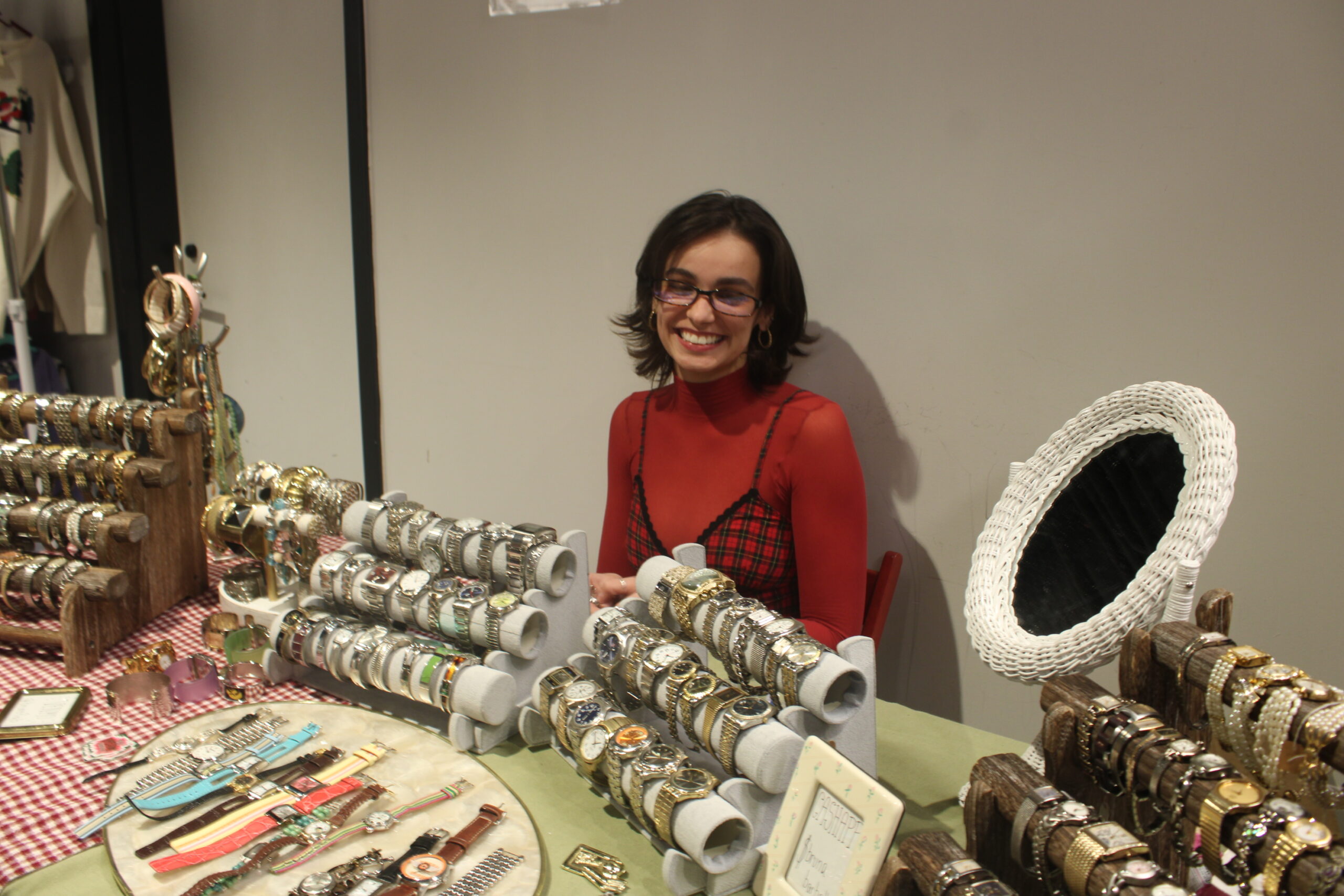
Bruna Barbaglio, another vendor at Select Markets, brought her passion for vintage fashion to the vent with an eclectic mix of items, including vintage watches and sweaters. While she typically focuses on secondhand clothing, Barbaglio’s love for vintage shines through in her curated selections.
Selling primarily through Select Markets and occasionally her Instagram (@figsvintagefinds) Barbaglio discovered the market through social media and friends from Urban Collection who encouraged her to join. Since then, she has become a regular participant, valuing the community and platform Select Markets provides.
For Barbaglio, shopping secondhand is not just a preference but a commitment to sustainability. “I genuinely feel an immense amount of guilt when I buy something non-secondhand,” she shared, emphasizing the environmental benefits of reusing existing items instead of creating more. Barbaglio highlighted how curated markets like Select make sustainable shopping more accessible, offering a handpicked selection that eliminates the overwhelmingness some might feel in traditional thrift stores.
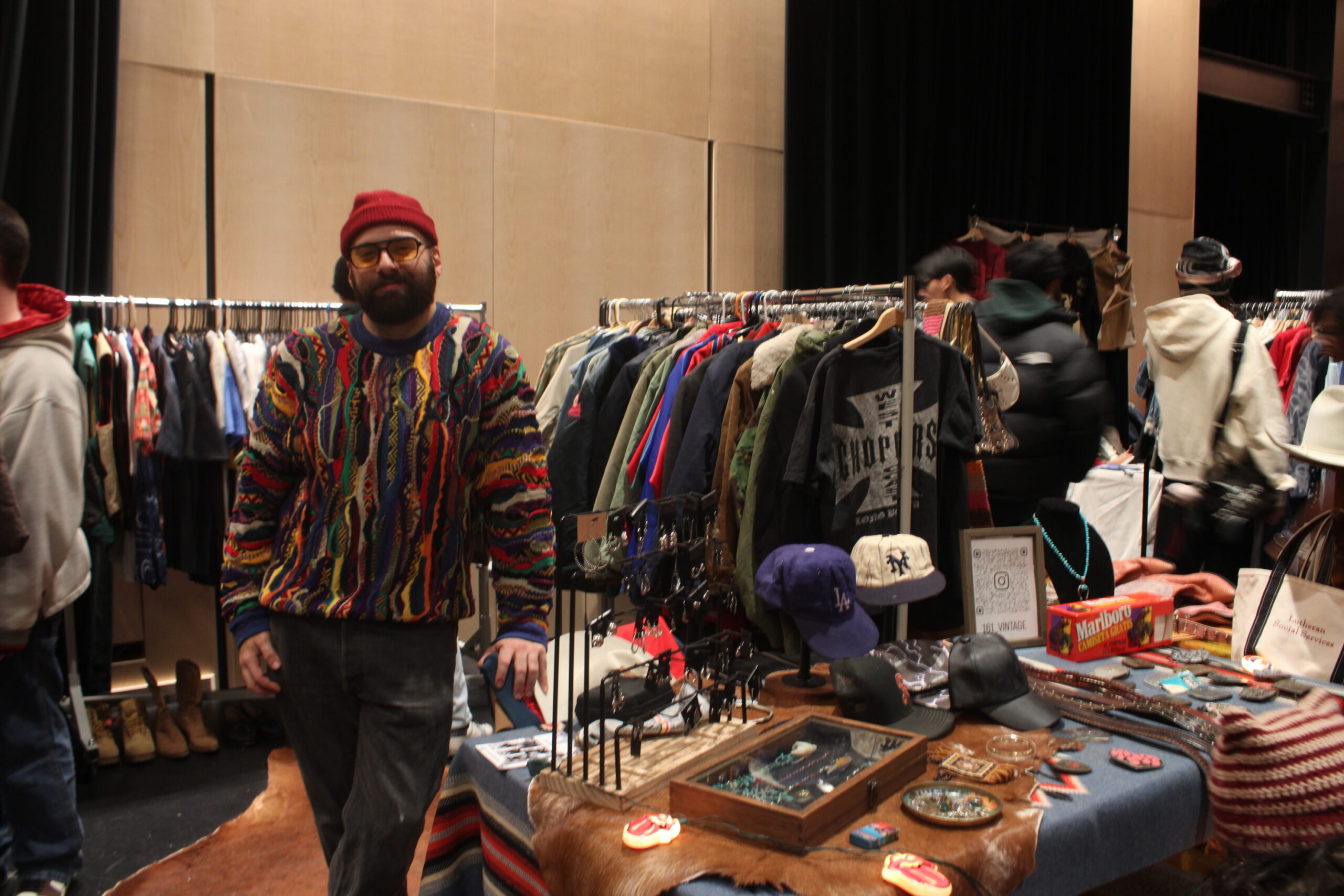
Similarly, Eric Pinto, a member of 161 Vintage, delved deeper into this conversation by highlighting the intersection of personal values, fashion, and systemic change. This conversation has allowed 161 Vintage to transform into a thriving business that spans across the U.S. and internationally—traveling from California to Japan and Thailand to curate high-quality garments.
Pinto clarified his views that thrifting is not just a fashion choice but an act of defiance against the wasteful practices of fast fashion and corporate greed. “Capitalism is the real enemy,” Pinto remarked as he urged consumers to make more sustainable choices by investing in durable, used clothing.
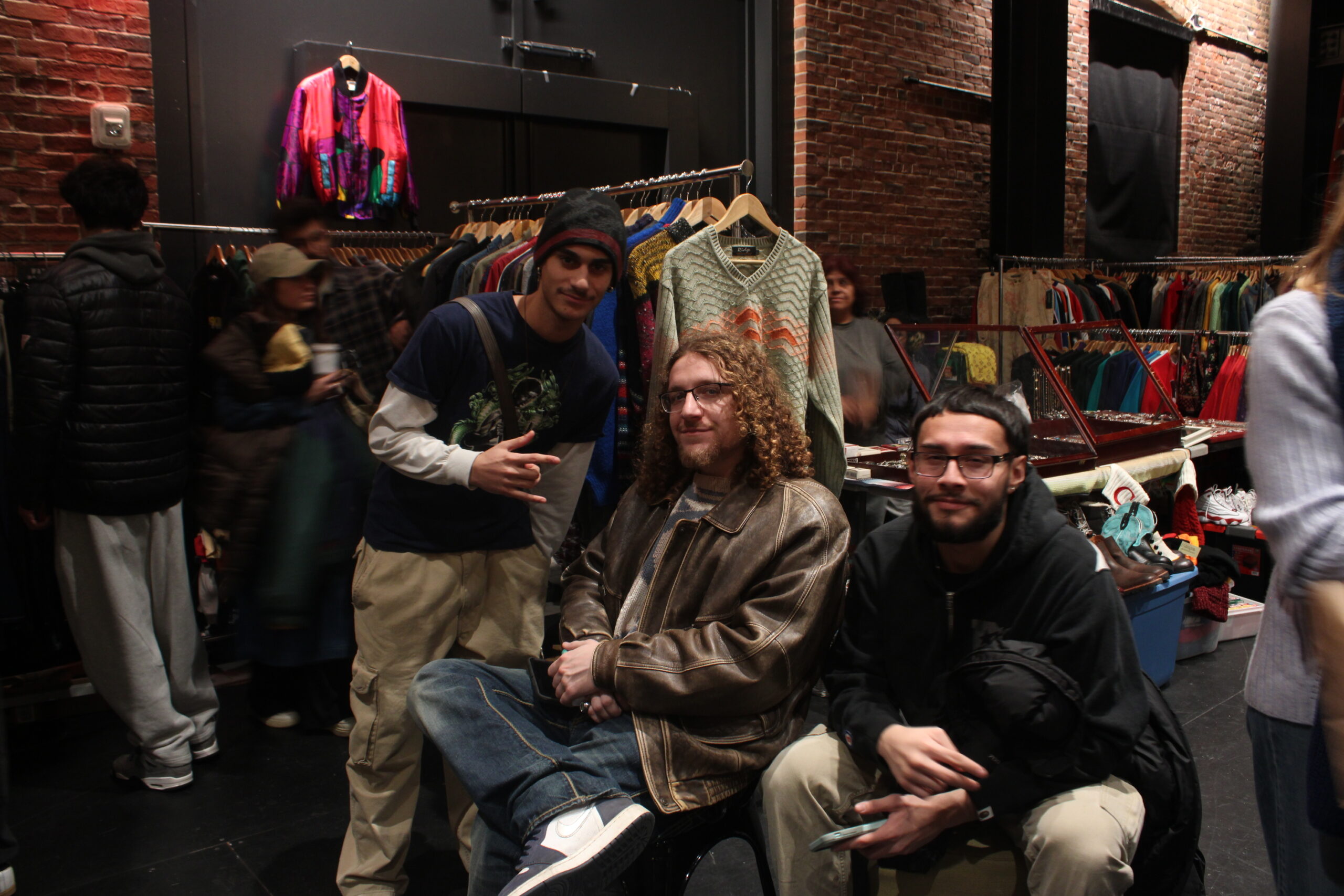
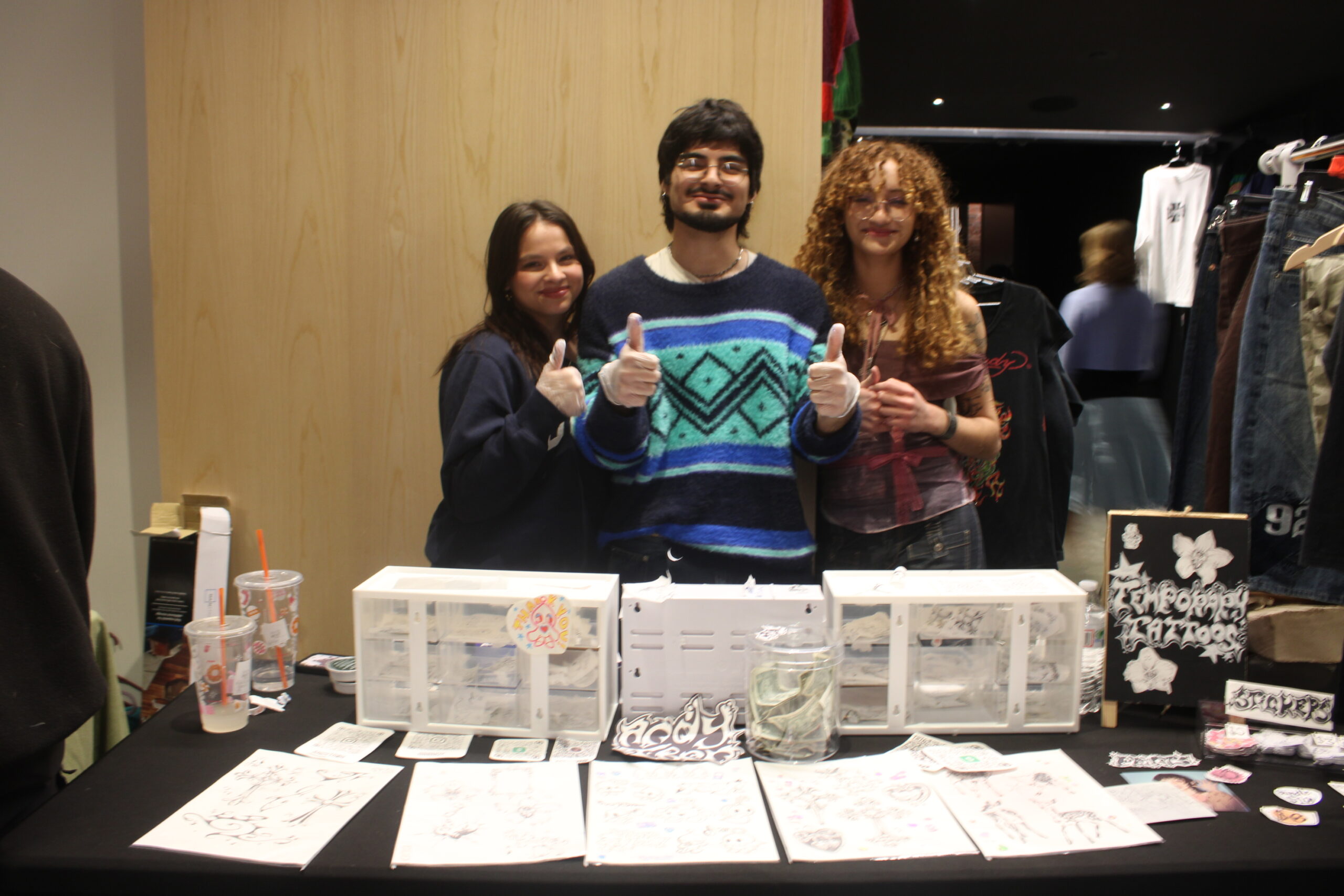
The events held by Select Markets serve as more than just marketplaces—they are centers for cultural exchange, social engagement, and collective action. With each pop-up event, individuals are demonstrating how secondhand shopping can be an expression of personal style and a commitment to ethical values.
As thrifting continues to gain momentum, it is clear that this movement goes far beyond simply buying used clothes. It is about participating in a larger conservation movement about environmental responsibility, consumerism, and the power of community.
Select Markets plans to host another event in 2025, and readers can stay updated on the latest happenings by following them on Instagram @select.markets.
